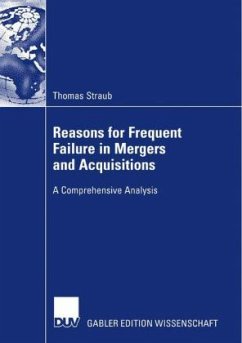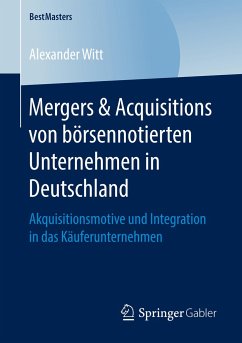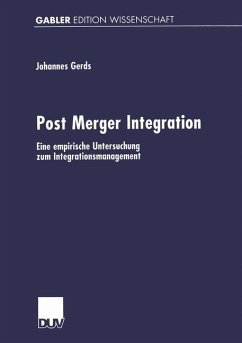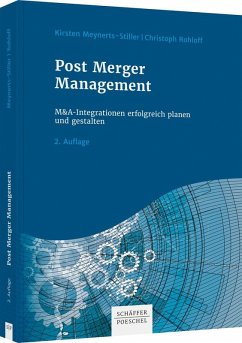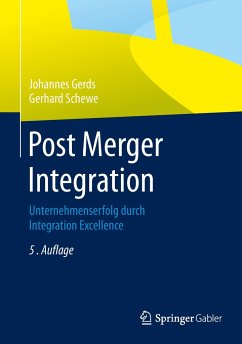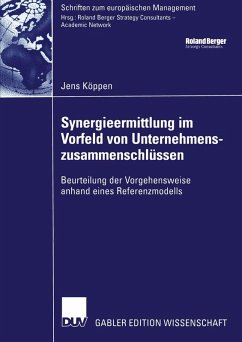
The Social Side of Mergers and Acquisitions
Cooperation relationships after mergers and acquisitions

PAYBACK Punkte
0 °P sammeln!
Mergers and acquisitions often fail to generate the expected value. One of the main reasons for such failures is a lack of cooperation among employees which prevents the expected formation of synergies.Florian Frensch investigates which individual characteristics of employees and which dyadic factors of relationship partners affect the cooperation between employees of previously separated firms. The author develops an innovative approach for gathering network data with the help of a dynamic computer-based questionnaire which allows him to conduct a full network analysis of a group of approximately 400 employees on the lower operative level of the firms. He shows that structural cooperation requirements and integration measures are powerful means to make employees cooperate after M&A and provides answers to the questions how integration after M&A can be measured, explained and improved.
The latest increase in numbers of mergers and acquisitions (M&As) and the latest increase in size of M&As raise the question, whether M&As can meet the expectations. This question is relevant in two ways, from an economic as well as from a social perspective. Despite its central economic importance, many mergers and acquisitions fall short of their objectives. In his work, Florian Frensch sees cooperation relationships between employees and management of previously separate firms as the key success factor for the realization of synergies and thereby for the M&A success. Cooperation depends on different factors on the environmental, the firm, team and the individual level. Grounded on extensive literature search, Florian Frensch investigates which individual factors of employees and which dyadic factors of relationship partners affect the cooperation between employees of previously separated firms. With the help of social network analyses, Florian Frensch investigates cooperation relationships after M&A-transactions in two case studies. Unlike previous studies, he asks employees on the lower operative levels of the firm instead of using key informants in the management ranks. In order to use social network analysis in larger groups, Florian Frensch develops an innovative approach for gathering network data with the help of a dynamic computer based questionnaire, which allows him to conduct a full network analysis in a group with ~ 400 employees.






